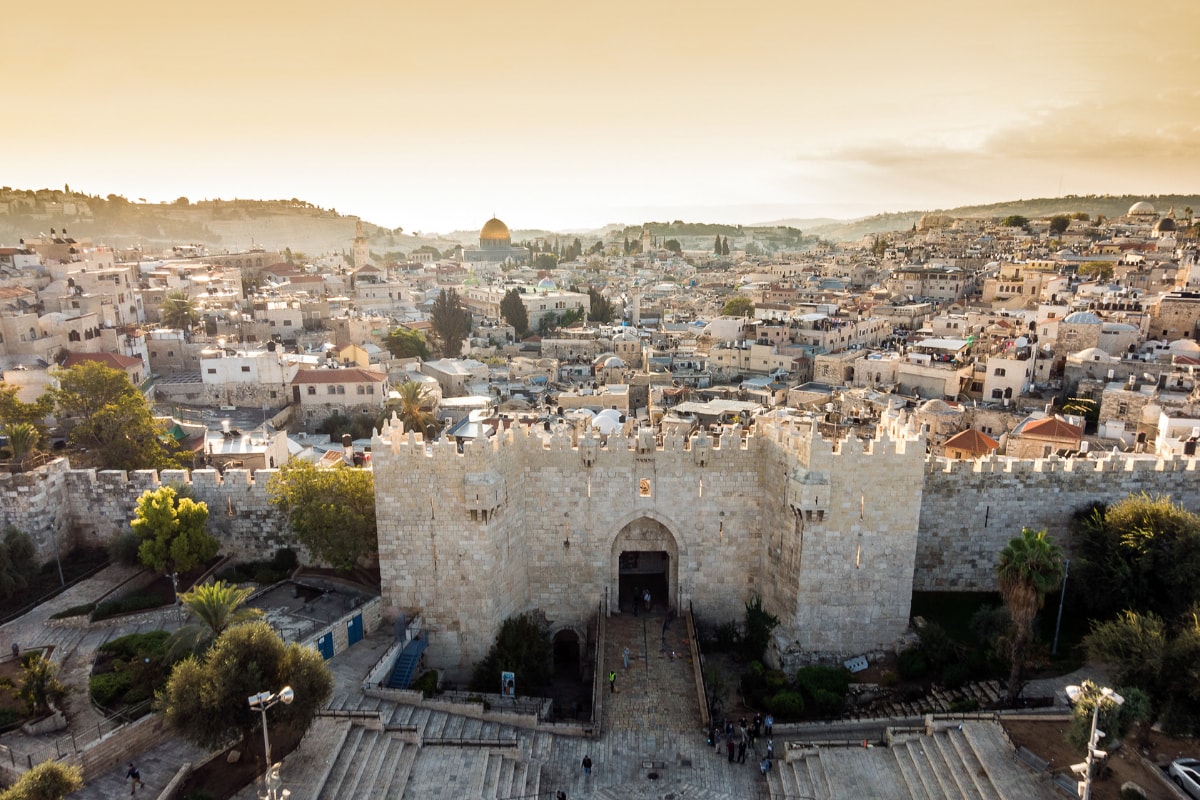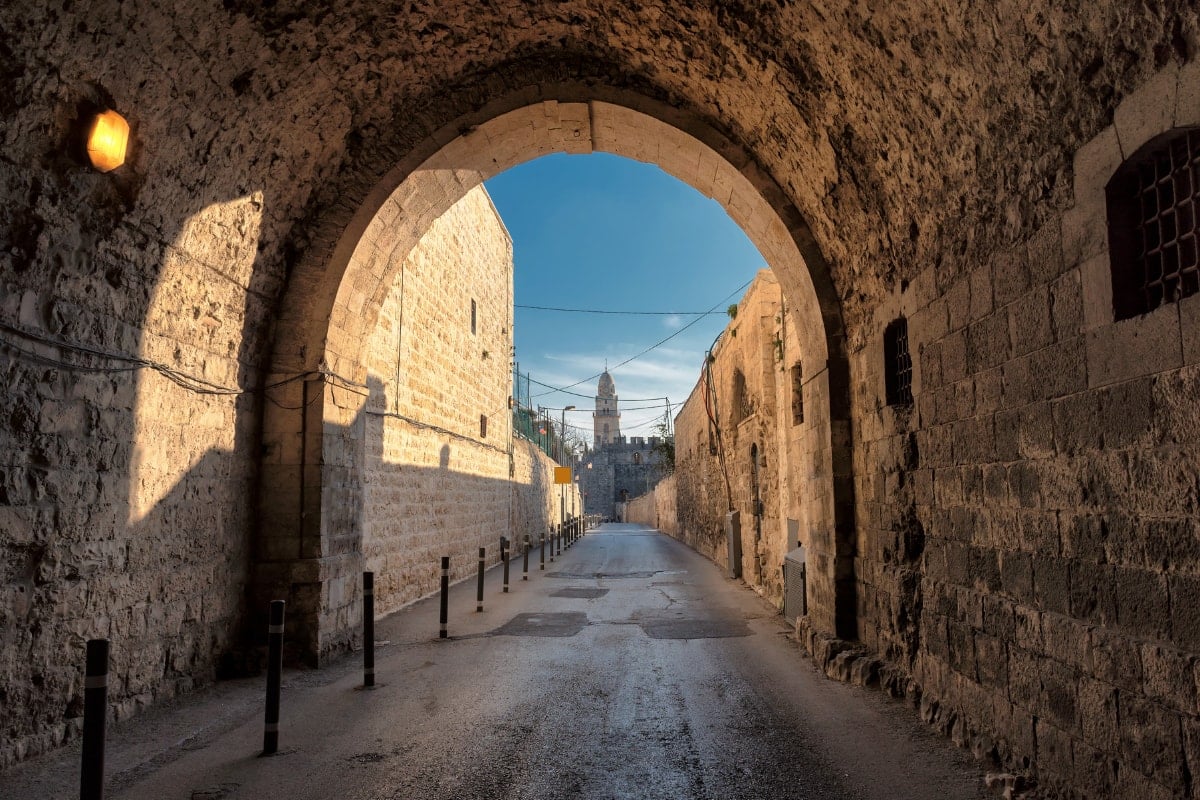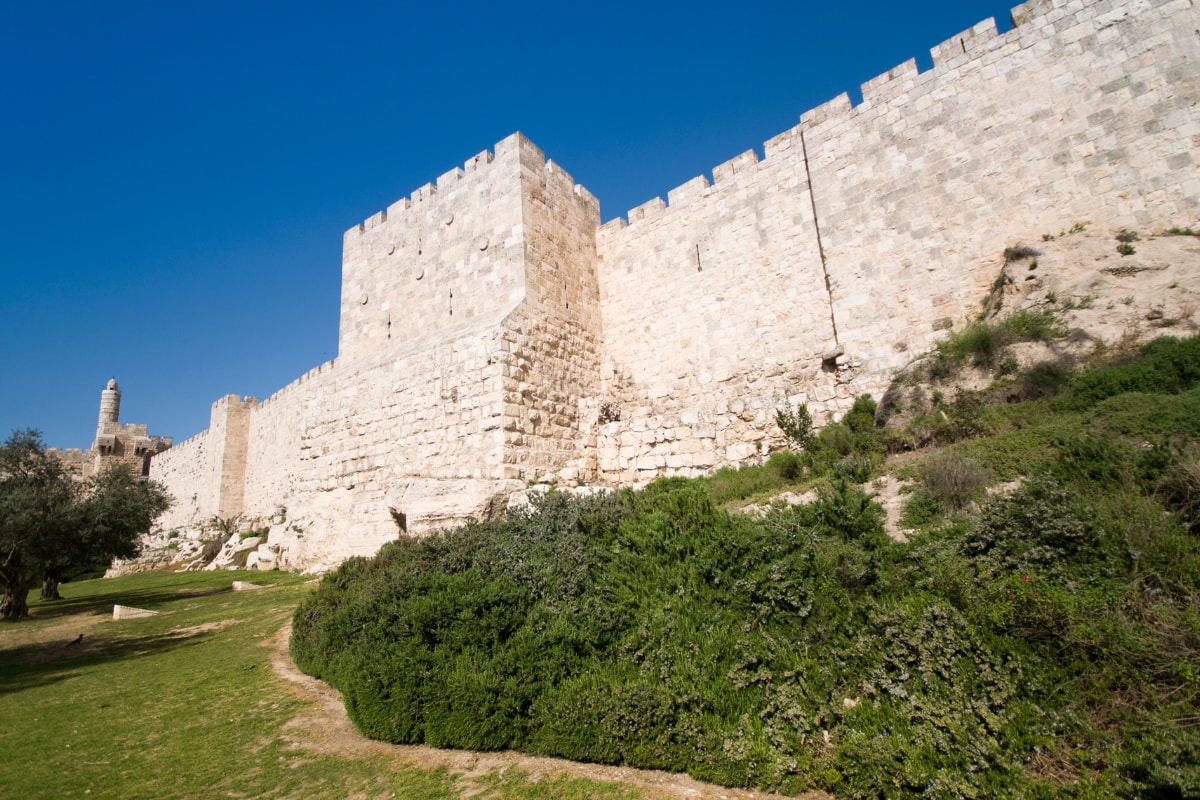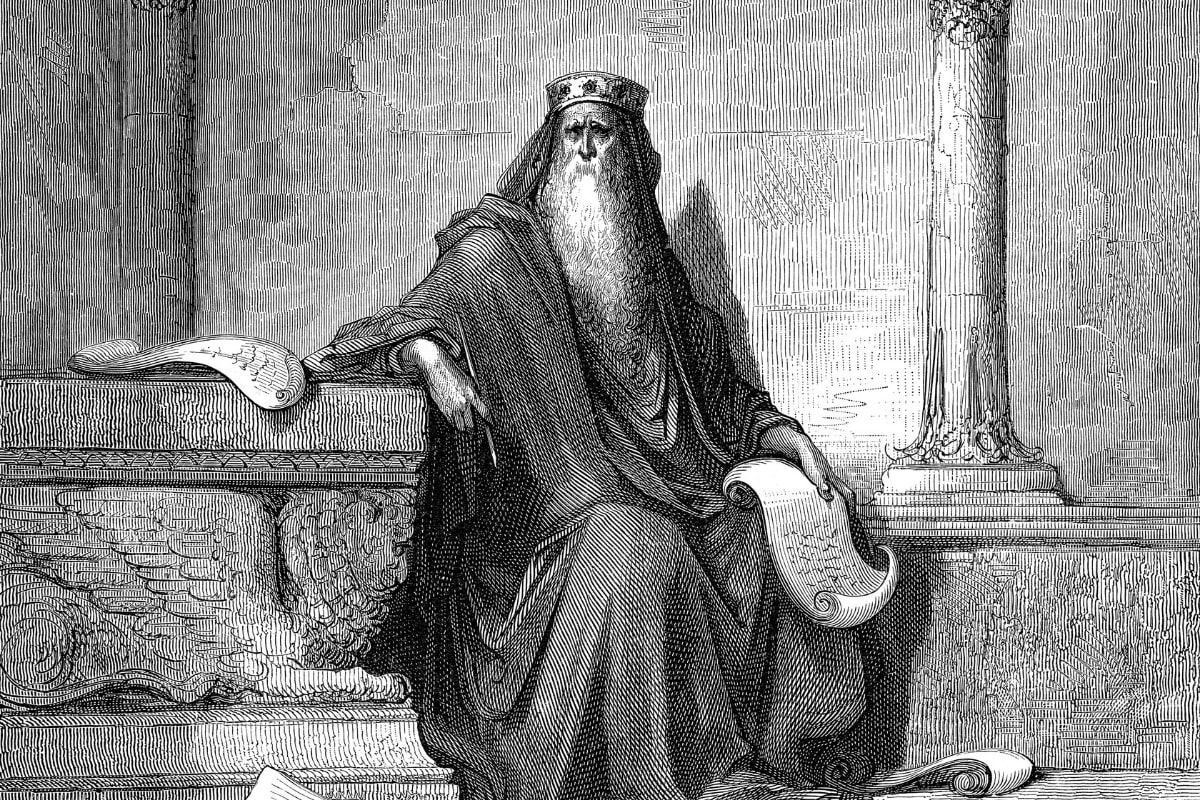Jerusalem is an Israeli city in the Middle East sitting on a plateau in the Judaean Mountains between the Mediterranean and the Dead Sea. It is one of the oldest cities in the world and is considered holy according to the three major Abrahamic religions—Judaism, Christianity, and Islam. Both Israel and the Palestinian Authority claim Jerusalem as their capital, a place where Israel maintains its primary governmental institutions, while the State of Palestine ultimately foresees it as its seat of power. However, neither claim is widely internationally recognized.

The History of Jerusalem
Throughout its long history, Jerusalem has been destroyed at least twice, besieged 23 times, captured and recaptured 44 times, and attacked 52 times. The segment of Jerusalem known as the City of David shows the first signs of settlement in the 4th millennium BCE in the shape of encampments of nomadic shepherds. In the Canaanite period (14th century BCE), Jerusalem was named Urusalim on ancient Egyptian tablets, probably meaning “City of Shalem” after a Canaanite deity. During the Israelite period, significant construction in Jerusalem began in the 9th century BCE (Iron Age II). In the 8th century, the city developed into the religious and administrative center of the Kingdom of Judah. In 1538, the city walls were rebuilt for the last time around Jerusalem under Suleiman the Magnificent.
Today those walls define the Old City, which has been traditionally divided into four-quarters—known since the early 19th century as the Armenian, Christian, Jewish, and Muslim Quarters. The Old City became a World Heritage Site in 1981, and is on the List of World Heritage in Danger. Since 1860, Jerusalem has grown far beyond the Old City’s boundaries. In 2015, Jerusalem had a population of some 850,000 residents, comprising approximately 200,000 secular Jewish Israelis, 350,000 Haredi Jews, and 300,000 Palestinians. In 2016, the population was 882,700, of which Jews comprised 536,600 (60.8%), Muslims 319,800 (36.2%), Christians 15,800 (1.8%), and 10,300 unclassified (1.2%). Some of the top sites to see in Jerusalem include the famous outdoor market, Shuk Machane Yehuda, the City of David, and Mount Zion.

According to the Bible, King David conquered the city from the Jebusites and established it as the capital of the united kingdom of Israel, while his son, King Solomon, commissioned the building of the First Temple. Modern scholars argue that Jews branched out of the Canaanite people and culture through the development of a distinct monolatrous – and later monotheistic – religion centered on El/Yahweh, These foundational events, straddling the dawn of the 1st millennium BCE, assumed central symbolic importance for the Jewish people. The sobriquet of holy city was probably attached to Jerusalem in post-exilic times. The holiness of Jerusalem in Christianity, conserved in the Septuagint, which Christians adopted as their own authority, was reinforced by the New Testament account of Jesus’s crucifixion. In Sunni Islam, Jerusalem is the third-holiest city, after Mecca and Medina. In Islamic tradition, in 610 CE it became the first qibla, the focal point for Muslim prayer (salat), and Muhammad made his Night Journey there ten years later, ascending to heaven where he speaks to God, according to the Quran. As a result, despite having an area of only 0.9 square kilometres (0.35 sq mi), the Old City is home to many sites of seminal religious importance, among them the Temple Mount with its Western Wall, Dome of the Rock and al-Aqsa Mosque, and the Church of the Holy Sepulchre. Outside the Old City stands the Garden Tomb.
Famous Figures in Jerusalem
There is no lack of renowned and well-known people originating from Jerusalem. It has produced several famous actresses, emperors, kings, historians, political leaders, and a variety of other personalities from multiple spheres. While some might be from different eras, or currently reside in other locations, these people will always have inherent Jerusalem roots bringing them back home to the Land of Israel. One of the most renowned and respected people originating from Jerusalem – Yitzhak Rabin, the 5th Prime Minister of Israel who served the country from 1974–1977 and from 1992 until his assassination in 1995. While in office, Rabin implemented the daring operation to rescue the Israeli hostages at Entebbe. Two other major events that took place during Rabin’s second term were the Oslo Accords with the Palestinians and the peace treaty with Jordan. These achievements fetched him international accolades, as he was honored with International Nobel Peace Prize (1994) and The Ronald Reagan Freedom Award. On November 4, 1995, Rabin was assassinated by a Jewish right-wing extremist in Tel Aviv and became the only Prime Minister to be assassinated in the history of Israel.

We must not forget about all the successors who came before us. King Solomon ruled the United Monarchy of Israel for an unprecedented 40 years. Also referred to as Jedidiah, he was born in Jerusalem and reigned from 970 BC as the third king of the United Monarchy. According to the Hebrew Bible, he constructed the First Temple in ancient Jerusalem, also called the Solomon’s Temple around the 10th century BCE. During his monarchy, King Solomon built many significant buildings in Jerusalem. He built the infrastructure to provide water supply in the city and constructed the Milo as a defense for the city. He was additionally a prolific author and created a large array of works. His writings include, ‘The Book of Proverbs’, ‘Ecclesiastes’, ‘Song of Solomon’ and ‘Book of the Wisdom of Solomon’.


